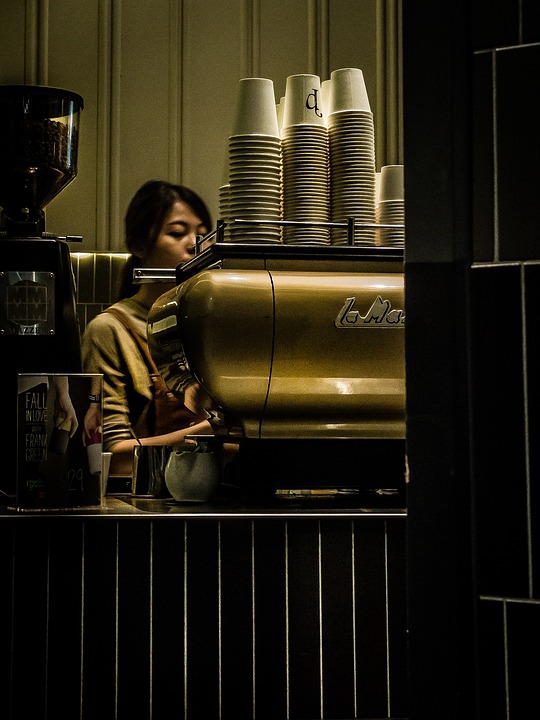Introduction
Commercial espresso machines are essential equipment for cafés, restaurants, and baristas looking to serve high-quality espresso-based beverages to their customers. These machines are designed to handle the high volume of orders typically seen in commercial settings while maintaining consistency and quality in every cup of espresso. In this report, we will explore the different types of commercial espresso machines available, key features to consider, industry trends, and top companies in the market.
Types of Commercial Espresso Machines
1. Traditional Espresso Machines
Traditional espresso machines, also known as manual espresso machines, are the classic choice for many cafés and restaurants. These machines require skilled baristas to operate them, as they involve manually grinding and tamping the coffee, pulling the shot, and steaming milk. Traditional espresso machines offer the most control over the brewing process and are favored by those who value the artistry of making espresso.
2. Automatic Espresso Machines
Automatic espresso machines are popular in high-volume commercial settings where speed and consistency are paramount. These machines automate many aspects of the brewing process, such as grinding, tamping, and shot extraction. Baristas can program these machines to deliver precise volumes of espresso, making them ideal for busy cafés and restaurants.
3. Super-Automatic Espresso Machines
Super-automatic espresso machines are the most advanced type of commercial espresso machine. These machines handle every step of the brewing process, from grinding the beans to frothing milk, at the push of a button. Super-automatic machines are perfect for establishments with minimal barista training or those looking to streamline their operations.
Key Features to Consider
When choosing a commercial espresso machine for your establishment, there are several key features to consider:
1. Boiler Type
Commercial espresso machines typically come with either a single boiler, dual boiler, or heat exchange boiler system. Dual boiler machines allow for simultaneous brewing and steaming, while heat exchange boilers maintain a consistent temperature for brewing. Consider your volume of orders and space constraints when selecting a boiler type.
2. Group Head Configuration
The group head is where the coffee is extracted, and commercial espresso machines come in various configurations, such as one, two, or three group heads. The number of group heads determines how many shots of espresso can be pulled simultaneously, so choose a configuration that matches your expected order volume.
3. Programmability
Many commercial espresso machines offer programmable features, such as shot volume, temperature control, and pre-infusion settings. These features allow baristas to customize the brewing process to achieve the desired flavor profile for each espresso shot.
Industry Trends
The commercial espresso machine market is experiencing several trends that are shaping the industry:
1. Sustainability
As more consumers prioritize sustainability, there is a growing demand for eco-friendly espresso machines that reduce waste and energy consumption. Manufacturers are developing machines with energy-saving features and recyclable materials to meet this demand.
2. Specialty Coffee
The rise of specialty coffee culture has led to an increased focus on quality and flavor in espresso beverages. Commercial espresso machines with precise temperature control and pressure profiling capabilities are becoming more popular among baristas seeking to extract the best flavors from their coffee beans.
3. Remote Monitoring
With advancements in technology, many commercial espresso machines now offer remote monitoring capabilities that allow café owners to track machine performance, maintenance needs, and usage data from their smartphones or computers. This feature helps operators optimize their workflow and prevent downtime.
Top Companies in the Market
Several companies dominate the commercial espresso machine market, offering a wide range of machines to suit different needs and budgets:
1. La Marzocco
La Marzocco is a renowned Italian manufacturer known for its high-quality espresso machines favored by professional baristas. Their machines are known for their durability, performance, and innovative design.
2. Nuova Simonelli
Nuova Simonelli is another Italian brand that has been a leading player in the commercial espresso machine market for decades. Their machines are known for their reliability, consistency, and cutting-edge technology.
3. Breville
Breville is an Australian brand that offers a range of commercial espresso machines suitable for small to medium-sized establishments. Their machines are known for their user-friendly features, sleek design, and affordability.
In conclusion, commercial espresso machines play a crucial role in the success of cafés, restaurants, and baristas looking to serve exceptional espresso beverages. By understanding the different types of machines available, key features to consider, industry trends, and top companies in the market, establishments can make informed decisions when investing in a commercial espresso machine.




